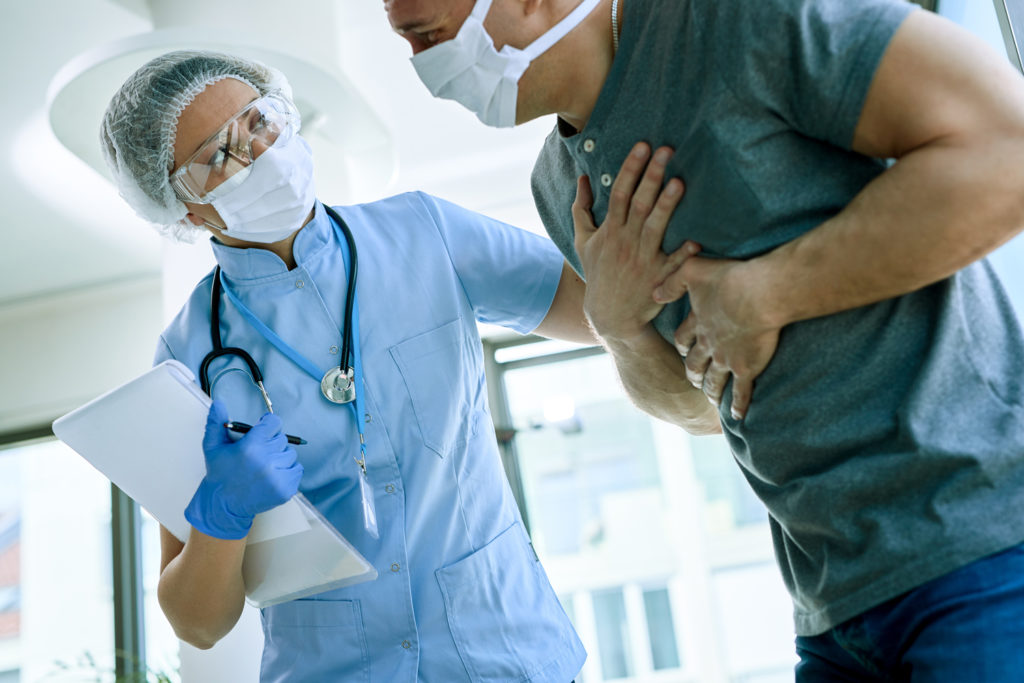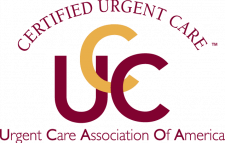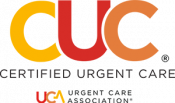If you or a loved one is experiencing any type of pain between the chin and abdomen, you might be wondering, “Can I go to urgent care for chest pain?” The answer is that it depends. While chest pain can be a sign of a serious cardiac condition, it can also be related to issues with respiration, digestion, bones and muscles, and other aspects of your physical and mental health.
Chest pain is one of the most common reasons for emergency room visits in the United States. In fact, the Centers for Disease Control and Prevention (CDC) report nearly 6 million adults are evaluated each year.
Chest pain should always be taken seriously, even if it’s mild. Emerald Coast Urgent Care wants you to get the right kind of care, fast, so keep reading to find out when it’s okay to visit an urgent care for chest pain and when you need an emergency room.
When to go to the emergency room for chest pain
If you’re experiencing any kind of chest pain and feel like something is seriously wrong, we encourage you to go to the nearest emergency room immediately because you know your body better than anyone else. You should also opt for the emergency room if you have persistent or severe chest pain that’s accompanied by any of the following symptoms:
- Pain spreading to the jaw, left arm, or back (common signs of heart attack)
- A sudden feeling of pressure, squeezing, tightness under the breastbone
- Confusion or disorientation
- Difficulty breathing, shortness of breath, or rapid breathing (especially after a long period of inactivity)
- Excessive sweating
- Extreme paleness
- Nausea or dizziness
- Very low blood pressure
- Very rapid heartbeat
When to visit an urgent care for chest pain
If you’re experiencing any type of chest pain, here are a few things to consider before heading to the emergency room. If any of the below factors apply to you, you can get proper medical care faster, and more affordably, at your local urgent care clinic:
- You recently lifted or moved something heavy.
The ribcage, muscles between the ribs, and points where they connect to the back and breastbone are surprisingly sensitive to trauma. Before rushing to the emergency room, think about recent activities in which you’ve been exerting your upper body because that could be the cause of your chest pain. - You feel general discomfort anywhere between your chin and lower abdomen.
Your heart, lungs, and esophagus share the same nerve supply, so if anything in that area becomes inflamed or damaged, it can lead to pain that radiates across a fairly large portion of your upper body. Consider if your chest pain is the result of gas, acid reflux, indigestion, or even stress. - (Women only) You are mid-cycle, around 2 weeks before menstruation.
The most common type of pain is linked to the menstrual cycle and is nearly always hormonal. It is common for women to experience cyclic breast pain (tender, swollen breasts) around the time of ovulation. - You feel chest pain after exposure to certain triggers.
If you notice issues like chest pain and shortness of breath every time you are exposed to things like pollen, dust, pet dander, or smoke, then you could be experiencing symptoms of allergies or asthma. It is possible to develop these conditions over time. - You feel panicked.
Panic can produce the sensation of chest pain. If you have an undiagnosed panic disorder, which is repeated panic attacks causing fear and other symptoms, then you could mistake your symptoms for a heart attack. Panic attacks are the most common reason people seek emergency medical treatment for noncardiac-related chest pain. If your pain stays in the chest and does not radiate to other areas like the arm, jaw, or neck, you may want to ask yourself, “Am I having a panic attack or a heart attack?”
If you’re worried about chest pain that is persistent, severe or otherwise concerning, then you should always seek immediate medical attention—even if you think it’s related to anxiety or a panic disorder. Visit Emerald Coast Urgent Care for chest pain because you shouldn’t have to wait to feel better. Walk-ins are welcome 7 days a week.




